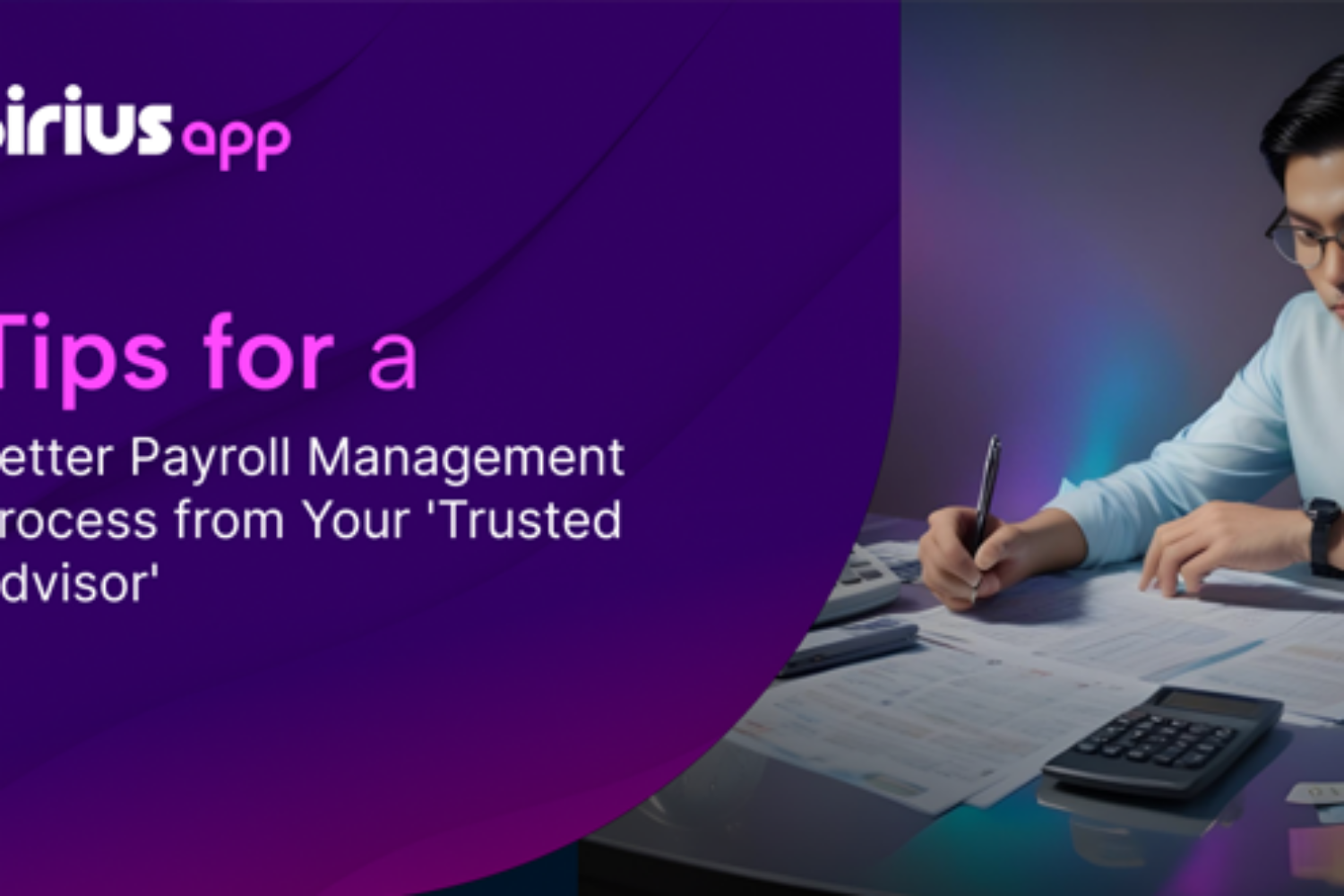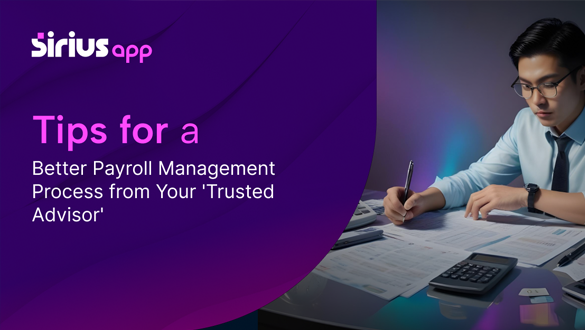The world is moving towards a sustainable future and so are your payroll systems.
Traditional payroll management methods, characterised by extensive paperwork and labour-intensive processes, are becoming increasingly inadequate. As businesses grow, the complexities of recording, tracking, and reporting time and attendance can overwhelm even the most organised teams. To enhance your payroll management process, consider embracing modern payroll solutions that offer automation, scalability, and data security.
Embrace Cloud-Based Payroll Solutions
Transitioning to a paperless, cloud-based payroll software has become essential for modern businesses, big or small. Many cloud-based solutions are more affordable than traditional software, reducing overhead costs associated with maintaining hardware and software. But the advantages these solutions offer go out and beyond. Not only is this more environmentally friendly, but it also enhances efficiency and accessibility.
With cloud-based payroll solutions, your employees and managers can access payroll information from anywhere, using any device, facilitating remote work arrangements. This accessibility and transparency empower employees while reducing the administrative burden for HR teams, whether checking pay calculations, work hours, or tax deductions. Further, cloud systems provide real-time data processing and insights into overall payroll expenses, ensuring timely and accurate payroll calculations.
Bonus Tip: Cloud-based payroll systems also offer scalability, allowing businesses to manage payroll for a growing workforce without being tied down by outdated infrastructure.
Leverage Automation and AI
This is the age of AI. Needless to mention how integrating automation and artificial intelligence (AI) into your payroll processes can dramatically improve efficiency. Automating repetitive tasks such as data entry and tax calculations minimises human errors that can lead to costly mistakes. To boot, payroll professionals can save up to 80% of their time on processing tasks, allowing them to focus on strategic initiatives rather than mundane activities. And as businesses increasingly adopt these technologies, it is
Moreover, modern payroll systems integrate with tax authorities like HMRC to ensure compliance with ever-changing labour laws and tax regulations automatically updating systems with the latest information.
By investing in an you can automatically retrieve tax codes, ensuring accurate calculations to avoid any potential penalties or legal issues. These systems also help you remain compliant with GDPR and other data protection regulations, giving you peace of mind that your sensitive payroll data is secure.
Integrate Payroll with HR Systems
Your payroll solution should work seamlessly with other key systems, such as your accounting, HR, and ERP platforms. Integrating your payroll management software with your existing systems creates a seamless workflow that enhances data accuracy and reduces redundancy. This integration allows for a centralised data management that maintains all employee information in one system, simplifying updates and minimising discrepancies that rise from manual inputs.
As businesses increasingly adopt cloud-based and ERP systems, payroll solutions that integrate with platforms like Microsoft Dynamics 365 Business Central provide valuable insights through detailed analytics, enabling better decision-making regarding compensation strategies or compliance tracking.
With 88% of companies either having or developing a payroll strategy, this integration is becoming a standard practice in effective payroll management.
Example: Dogma Group’s Sirius Payroll 365 is a simple and affordable payroll solution that integrates smoothly with Microsoft Dynamics 365 Business Central, centralising payroll and HR processes to save time and improve accuracy.
Focus on Employee Self-Service
Whether dealing with a small team or a large, diverse workforce, staying on top of employee statuses—such as new hires, leave balances, or performance bonuses—is critical to payroll accuracy. Implementing an employee self-service portal empowers employees to manage their own payroll information. This boosts transparency as employees can view their pay stubs, tax documents, and benefits information at any time.
And by allowing employees to update personal information and access payroll data independently, HR teams can focus on more strategic tasks rather than administrative ones.
Research indicates that 82% of employees benefit from self-service portals, highlighting their importance in modern payroll management.
Future-Proof Tip: An integrated payroll system with self-service functionality also helps your business stay compliant with evolving employee rights, pension schemes, and leave entitlements.
Classify Your Employees Accurately
One of the most common causes of errors in pay is the misclassification of staff. Whether categorised as an employee, consultant, self-employed worker, contractor, or temporary worker employed by an agency, making mistakes in the way you classify these in your payroll department can lead to costly blunders.
How an employee is categorised typically means there is a difference in pay. For example, contractors may work a few days a week on an agreed day rate, while an employee is salaried and paid monthly.
Besides, how an employee is classified also determines the employments rights that an individual is entitled to receive by law. For instance, whether the employee needs to be paid through PAYE or by other means. Besides, the HMRC’s online service should always be your primary port of call if you are unsure of the way to classify your employees for payroll.
Prioritise Cybersecurity
As payroll systems handle sensitive employee data, robust cybersecurity measures are critical. A payroll system should not only comply with GDPR but also incorporate encryption, role-based access control, and data redundancy to protect against breaches or data loss.
Key strategies include:
Data Encryption: Protecting stored data from unauthorised access through encryption protocols.
Multi-Factor Authentication: Adding an extra layer of security during login processes to safeguard against breaches.
Regular Audits: Conducting frequent security audits helps identify vulnerabilities within the system.
With increasing concerns about data breaches, prioritising cybersecurity within your payroll system is not just advisable but essential for protecting your business and its employees. By using a cloud-based, compliant solution, businesses can mitigate the risk of unauthorised access or data leaks.
Conclusion
As the world continues to make advancements in technology in a fast lane, the landscape of payroll management is evolving just as quickly, along with shifting workforce dynamics. By adopting cloud-based solutions, leveraging automation and AI, integrating HR systems, focusing on employee self-service, and prioritising cybersecurity, businesses can significantly enhance their payroll processes.
Investing in a robust payroll system not only streamlines operations but also fosters a more satisfied workforce—ultimately contributing to your organisation’s success in today’s competitive business environment. Embrace these changes now to position your company as a leader in effective payroll management solutions in the UK.
Ready to Upgrade?
Sirius Payroll 365 is a fully HMRC-compliant solution that manages your organisation’s payroll easily. Sirius Payroll 365 streamlines your payroll processes, so your HR and Finance departments can ensure accuracy, timeliness, and compliance.
Discover how our cloud-based payroll solutions can simplify your payroll management. Contact us for a free consultation!

